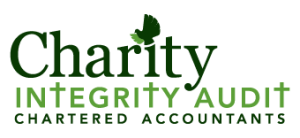What financial reporting standards should we apply for our annual financial statements?
The Public Benefit Entity (PBE) financial reporting that are mandatory standards for charities since 2015. If your organisation is a charity then we’d recommend you visiting the External Reporting Board (XRB) web site, and their FAQ section, as referenced below. If you are a not for profit, i.e. sports club, but not a registered charity, then you currently have a choice of preparing special purpose financial statements under the for profit framework, or adopting the PBE reporting. Please note that while it is currently not mandatory for a non-charity not for profit to adopt the new PBE reporting standards, there will be a time when this will be needed. Below is a table of the new PBE financial reporting framework, and minimum statutory requirements:
The External Reporting Board (XRB) has recently announced changes to the threshold size of the reporting sized. The changes come into effect for reporting periods ending on or after 28 March 2024:
| TIER | SIZE OF ORGANIZATION | ASSURANCE REQUIREMENTS | BASIS OF PREPARATION |
|---|---|---|---|
| 2 | PBE with annual expenditure greater than $5 mil, less than $30 mil. | Required to be Audited | NZ,International Public Sector Accounting Standard [NZIPSAS] with RDR |
| 3 | PBE with annual expenditure greater than $1 mil, and less than $5 mil | Required to be Audited | Tier 3 (NFP) standard |
| 3 | PBE with annual expenditure greater than $500,000, and less than $1 mil | Can choose an Audit or Review | Tier 3 (NFP) standard |
| 3 | PBE with annual expenditure greater than $125,000 and less than $500,000 | No Audit or Review requirements | Tier 3 (NFP) standard |
| 4 | PBE with annual expenditure less than $125,000 p.a. | No Audit or Review requirements | PBE Simple Format Reporting cash accounting |
For tier 3 entities, the Tier 3 (NFP) applies to accounting periods begin on or after 1st April 2024. Early adoption is permitted for accounting periods that ends after 15 June 2023.








